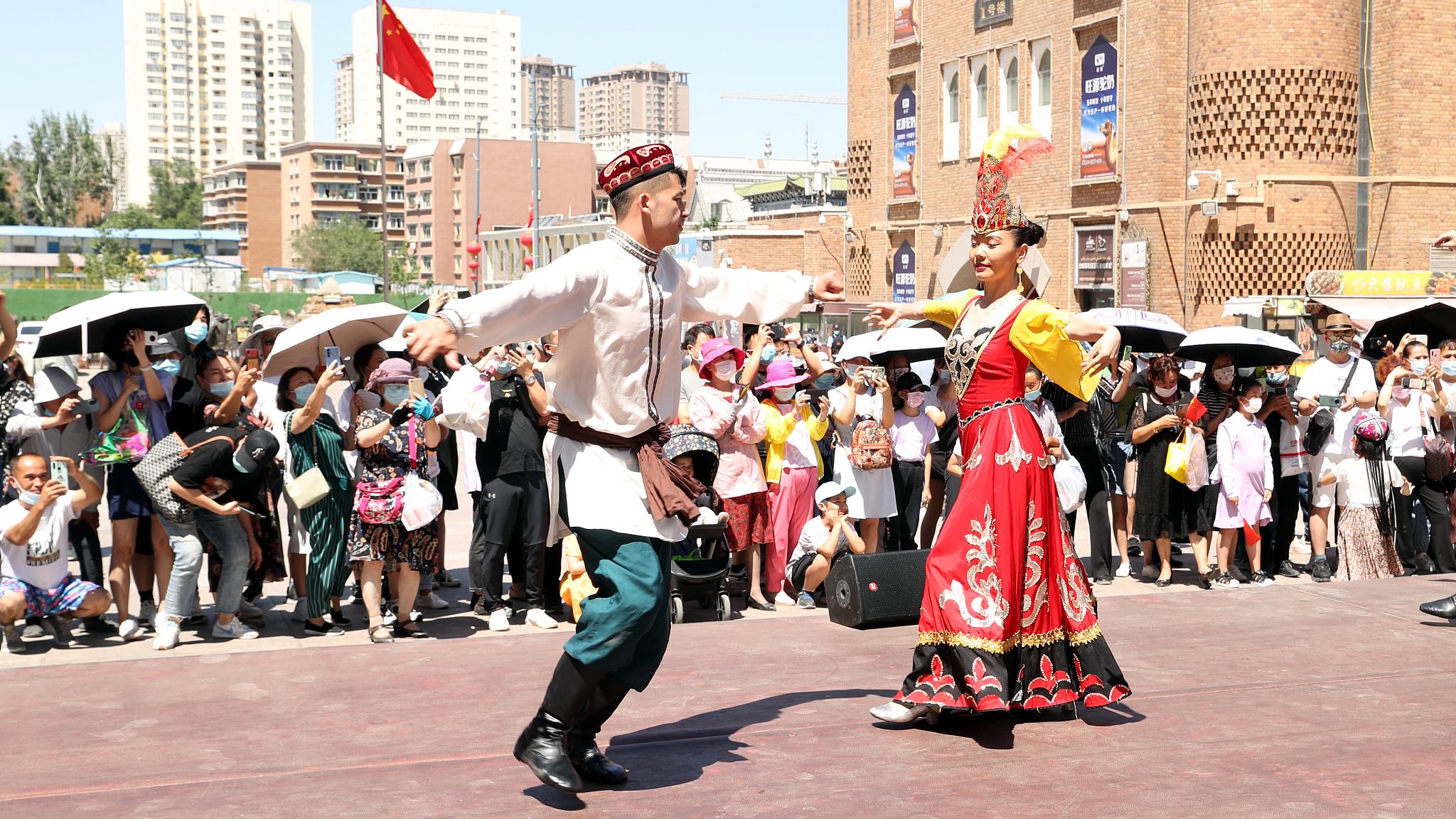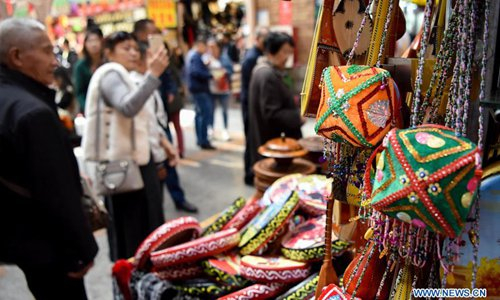
China's policies in Xinjiang have made notable progress. /VCG
China's policies in Xinjiang have made notable progress. /VCG
Editor's note: Andrew Korybko is a Moscow-based American political analyst. The article reflects the author's views and not necessarily those of CGTN.
CNN tried a new information warfare trick on Wednesday by comparing China's proactive anti-terrorism and job-training programs in the Xinjiang Uygur Autonomous Region to centuries of Western colonial crimes.
In their article titled "China is attacking the West's colonial legacy. That may backfire on Beijing," the outlet claims that the People's Republic of China is hypocritical for calling out the legacy of Australian and Canadian colonialism. A former Canadian ambassador to China even said that the UN should investigate the West's claims about Xinjiang in response to China calling for a UN investigation of Canadian colonial crimes. This narrative is ridiculous and deserves to be debunked.
For starters, there's decades' worth of undeniable evidence confirming that Australia and Canada carried out heinous crimes during their colonial periods. Their own governments were even forced to acknowledge this to a certain extent following years of grassroots pressure. The proof was always there but was covered up by the authorities for convenient reasons mostly related to artificially maintaining what they regard as their moral and political supremacy relative to non-Western countries. The legacy of their colonial crimes continues to this day and has yet to be properly addressed. The victims' descendants continue to suffer due to systemic reasons.
By contrast, there is no undeniable evidence confirming any Chinese crimes in Xinjiang. All such claims are the product of a combination of foreign intelligence agencies, information warfare waged by Western mainstream media outlets, and a handful of locals with an ideological axe to grind against the Communist Party of China (CPC).
Nothing is being covered up either as China has allowed many foreign representatives, including from majority-Muslim countries, to visit the region and see for themselves that no so-called "genocide" is happening. China's proactive anti-terrorism and job-training programs help minorities; they don't hold them back in any way.

Xinjiang International Grand Bazaar in Urumqi, Xinjiang Uygur Autonomous Region, NW China, October 5, 2019. /Xinhua
Xinjiang International Grand Bazaar in Urumqi, Xinjiang Uygur Autonomous Region, NW China, October 5, 2019. /Xinhua
The next obvious point to make in light of the aforementioned one is that there isn't anything hypocritical about China calling out the legacy of Australia and Canada's colonial crimes. Representatives from China only responded to widely reported news events which brought those topics back into the global consciousness. Beijing didn't randomly decide to talk about those issues, and it's far from the only one doing so. The centuries of Western colonialism shaped human history, but not in any good way. Their consequences continue to reverberate into the present day, not just in the colonizers themselves but across the whole world.
It is, therefore, quite relevant to discuss this epoch at any given time. In fact, one can argue that it isn't discussed enough in the global media, most of which is dominated by the West. Its media sometimes selectively focus on this topic whenever it's domestically convenient for them such as if they want to promote a certain political force that's discussing it.
A perfect example is the Democrats who started covering this a lot after George Floyd's murder last year. Other times the media hides behind the insincere acknowledgment of these crimes in order to create a cover for discussing others' alleged ones such as what they claim are China's in Xinjiang.
To be absolutely clear, it's always better to talk about Western colonial crimes regardless of the reason than not to discuss them at all, but it's still important to point out how CNN deceptively framed their latest hit piece against China. They made it seem like the West's increasingly public conversations about their countries' colonial crimes give them a right to talk about what foreign intelligence agencies are accusing China of.
It doesn't though, at all, since the situation in Xinjiang cannot be compared in any credible way to Western colonialism for the earlier mentioned reasons, especially since the Uygurs' standard of living has actually improved lately.
Astute observers of history, international affairs, and society won't be misled by CNN's latest information warfare attack. They'll see exactly what the outlet is trying to do. CNN is attempting to make a false comparison between the situation in Xinjiang and Western colonialism so as to misportray China as hypocritical and even colonial itself.
Nothing could be further from the truth. The entire world should actually discuss Western colonial crimes more often and in a higher profile way than simply reacting to relevant news events that bring this dark era back into the public's consciousness. Their legacy still endures and must therefore be confronted.
(If you want to contribute and have specific expertise, please contact us at opinions@cgtn.com.)

